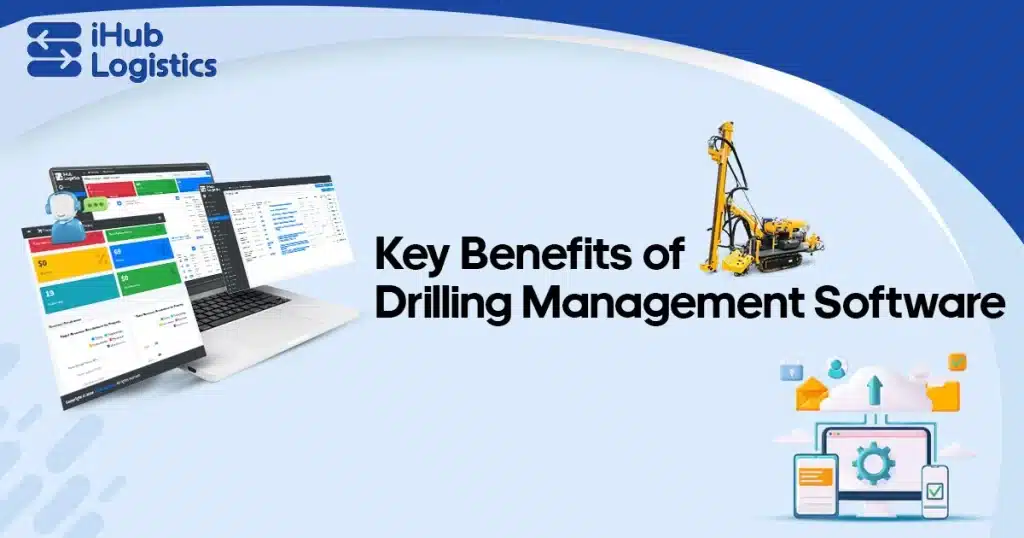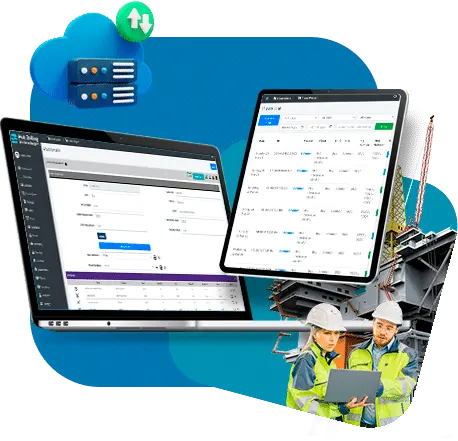
Drilling management software is a game-changer for the drilling industry. It brings a host of benefits that streamline operations, boost efficiency, and ensure compliance. Here’s a closer look at why this software is essential for both small and large drilling operations.
1. Project Planning and Scheduling
Effective project management is crucial in drilling operations. Drilling management software offers detailed tools for meticulous planning and scheduling. It helps ensure that every project is mapped out clearly from start to finish.
With this software, drilling managers can allocate resources efficiently and keep track of project milestones. This precise planning prevents resource wastage and helps avoid delays. If a project starts to veer off schedule, the software provides early alerts. Managers can then make quick adjustments to bring it back on track.
This systemised approach to scheduling ensures that projects run smoothly and finish on time. It also keeps costs under control by reducing the likelihood of expensive overruns. Overall, project planning and scheduling make drilling operations more predictable and financially manageable.
2. Drill Log Management
Maintaining accurate drill logs is essential for any drilling operation. Drilling management software simplifies the process of recording and accessing drill logs digitally. This capability ensures that all critical data from the drilling site is easily and immediately available in the Progressive Log of Drilling (PLOD).
With this software, drillers can quickly enter key details such as drilling depth, rate of penetration, and core recovery. It also allows for the recording of geological observations and equipment performance. This comprehensive data collection is vital for assessing the efficiency of drilling activities.
Having this information at their fingertips helps managers and engineers analyse drilling performance in real-time. They can identify trends, anticipate potential problems, and make informed decisions to optimise drilling operations.
3. Equipment Management
Equipment reliability is critical in drilling operations, where any failure can lead to significant downtime and financial loss. Drilling management software provides essential tools for overseeing every piece of equipment used on-site. This technology helps track the location and operational status of all drilling machinery and tools.
The software includes features that schedule maintenance checks at regular intervals. This ensures that all equipment is kept in optimal working condition. By proactively maintaining equipment, the software helps prevent unexpected breakdowns and the costly disruptions they cause.
This approach allows for better planning and resource allocation. When maintenance is scheduled regularly, operations can adjust their workflows accordingly, minimising any impact on productivity. This careful management of the equipment lifecycle extends the machinery’s lifespan and optimises the drilling operation’s overall efficiency.
4. Resource Management
Drilling software streamlines resource management. It systematically organises the management of personnel and materials. It serves as a central hub for managing all human and material resources involved in the drilling process.
The software handles complex scheduling tasks, ensuring that all team members know their roles and work times. This helps prevent overlaps and gaps in staffing, which can lead to delays or inefficiencies. Additionally, it manages payroll efficiently, reducing the administrative burden and minimising errors in compensation.
On the materials side, the software oversees the supply chain necessary for continuous drilling operations. It ensures that all required materials, from drilling bits to safety equipment, are available on-site when needed. This prevents project delays due to material shortages and helps maintain a steady flow of operations.
5. Real-Time Data Access and Reporting
Access to real-time data is crucial in drilling operations. Drilling management software delivers this by providing up-to-the-minute data directly from the field. This feature allows managers and decision-makers to stay constantly informed about the current status of drilling activities.
The ability to access data in real-time enables managers to make quick, informed decisions. These decisions can significantly impact the success and efficiency of a project. If an issue arises, it can be addressed immediately, preventing minor problems from becoming major setbacks.
Moreover, the software includes powerful reporting tools. These tools analyse performance data and provide insights into operational efficiency and cost management. By understanding these metrics, companies can optimise their processes to improve overall performance and reduce unnecessary expenses.
6. Integration with Other Systems
Integrating drilling management software with other critical systems like GIS (Geographic Information Systems) and ERP (Enterprise Resource Planning) offers significant benefits. This connectivity creates a unified management experience, which is crucial for the smooth operation of drilling projects.
The software’s integration capabilities allow it to share data seamlessly with GIS systems. This is vital for accurate geological mapping and analysis. It helps in planning drilling locations and understanding geological features more effectively.
Similarly, when connected to ERP systems, the software can handle financial management and logistics more efficiently. This integration ensures that financial records are accurate and up-to-date. It also simplifies tracking project costs and managing budgets.
7. Mobile Compatibility
Many drilling operations occur in remote areas where traditional computing devices might not be practical. Mobile compatibility in drilling management software addresses this challenge effectively. It allows field workers to use their mobile devices to access and input data directly from the drilling site.
This flexibility is crucial for maintaining accurate and timely records. Workers can update data on the go, ensuring that all information reflects the latest developments. This immediacy prevents delays in data reporting and reduces the risk of errors associated with manual data entry later on.
This capability is particularly valuable in fast-paced environments where conditions can change quickly, and data needs to be updated constantly.
8. Online and Offline Work Capabilities
The ability to work both online and offline is crucial. Drilling locations often have unreliable internet access. This feature allows users to continue their work and store data offline. Once the internet is available, the system syncs the data automatically. This ensures no data is lost and all records are up to date.
This automatic synchronisation guarantees that no data is lost. It ensures that all records are consistently up-to-date across the system. As a result, the integrity and continuity of data are maintained, supporting accurate decision-making and comprehensive record-keeping.
9. Communication
Good communication is vital for any project. Reliable drilling management software includes features that enhance communication.
Features like instant messaging, real-time updates, and automated notifications are great components. These tools allow team members to share information quickly, regardless of their location. Whether it’s a change in the drilling schedule or an urgent safety notice, the message gets through immediately.
This ensures everyone is on the same page, reducing misunderstandings and errors. Keeping all team members informed enhances collaboration and helps in making timely, informed decisions.
10. Data Security and Reliable Backups
Securing sensitive operational and geological data is crucial. Drilling management software provides robust security measures to ensure that all data is protected from unauthorised access, loss, or theft.
The software includes secure storage systems that safeguard data by using advanced encryption methods. These methods prevent any external breaches or internal leaks. Additionally, the system routinely performs backups. This means that even in the event of a system failure, data is not lost.
Regular, reliable backups are integral to maintaining data integrity. They ensure that all information, regardless of when it was recorded, is retrievable in its most accurate form. This security and reliability are essential for compliance and for making informed decisions based on historical data.
11. Compliance and Safety
Lastly, safety and compliance cannot be overlooked. The software ensures that drilling activities meet the highest safety standards and regulations.
The software effectively manages permits and safety documentation. Ensuring that all necessary paperwork is up-to-date and accessible. Such efficiency is critical for passing inspections and avoiding legal issues.
Additionally, it helps monitor compliance with safety protocols. It sends alerts and reminders to ensure that safety practices are followed consistently. This proactive approach protects the well-being of every worker on site.
Drilling management software is more than just a tool; it’s a vital component of modern drilling operations. It offers numerous key benefits, such as simplifying complex processes, ensuring safety, and enhancing efficiency. Making it an indispensable asset for any drilling company.

Try iHub Drilling Technologies Today
Ready to take your drilling operations to the next level? If you’re looking to improve your drilling operations, check out iHub Drilling Technologies. Our software makes managing your projects simpler and keeps your teams safe and compliant. See how our tools can help you work smarter and more efficiently.
